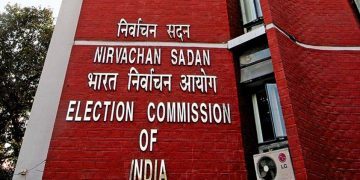COLUMN ECONOMY Dr Bharat Jhunjhunwala
The finance minister is right in cutting down on the welfare state. The need now is to move towards a welfare economy
==
BLURB
Finance minister Jaitley must reduce corporate tax rates only for such corporations that create a number of jobs. He should provide incentives to job creation. Companies that generate a large number of jobs may be provided with tax breaks. Use of job-eating automatic machines may be banned in the country; and import of goods manufactured with these machines may be subject to a high rate of tax
TEXT
The UPA is attacking the NDA government for being anti-poor. On the other hand, finance minister Arun Jaitley claims the incentives given to corporate entities will translate into jobs for the poor and the NDA government is actually pro-poor.
The UPA policy was to tax the corporate entities and use the revenues for pro-people welfare programmes run by the government such as MNREGA, farmers’ loan waiver, Indira Awas Yojana, and the like. The problem in this approach was two-fold. One, big corporations used automatic machines and this led to a reduction in the number of jobs. MNREGA, then, was providing relief to the workers who had been rendered unemployed by those very corporations who had made them unemployed. A second problem was that schemes like MNREGA were heavily afflicted with corruption. The beneficiary got only a small share of the money that was meant for him.
NDA has taken a different approach. Finance minister Jaitley has announced in his budget speech that corporate tax rates would be reduced from the present 30 per cent to the global norm of 25 per cent over the next four years. This would lead to an increase in investments and a large number of jobs will be created. This reduction in revenues for the present is reflected in the budget in decreased real expenditures on social welfare schemes like MNREGA. The total outlay for this scheme in the budget for the current year is Rs 34,000crore, which, if my memory serves me right, is equal to the budget allocation for the scheme last year. This actually implies a reduction in the outlay because inflation has eroded the value of money. Rs 34,000crore of last year would be equal to Rs 38,000crore this year. Thus the allocation for the current year has been reduced from Rs 38,000crore to Rs 34,000crore this year.
The decline in social sector expenditures is in keeping with the global trends. World over, countries are being forced to reduce tax rates to attract MNCs and that is leading to a cut in the welfare expenditures. The finance minister has tried to cover up the reduction in real allocation on welfare schemes by announcing new schemes for insurance to the poor that are essentially cosmetic in nature. These schemes do not entail large government outlays, and hence the results will also be correspondingly minimal irrespective of the hype.
The finance minister’s strategy hinges on the level of investment. Jobs will be created and the government would not be required to raise tax revenues for welfare schemes. On the other hand, the finance minister will face a nasty situation if investment is small. Jobs will not be created, tax revenues will be down, and the government will be trapped in a vicious cycle of reduced tax collections followed by reduced welfare expenditures. The key question then is whether the reduction in tax rates will actually translate into torrents of investments. I doubt the success of this strategy because there is a global race to the bottom between countries. All countries are reducing their tax rates to attract investments. India will have to outdo a large number of countries to win the race.
Success is not ensured even if such torrents of investments pour in. Reason is that most investment will take place in capital-intensive industries. Only a handful of new jobs will be created while large numbers of jobs will be lost. For example, manufacture of bread by Britannia and similar large companies may have generated a few thousands of jobs but this has led to large numbers of small bread manufacturers closing their shutters, leading to a loss of lakhs of jobs. Similarly, the establishment of a large textile mill leads to loss of jobs in thousands of handlooms and powerlooms. A study by CRISIL has reported that between 2005 and 2010, the number of workers required to produce goods worth Rs one crore declined from 171 to 105.
The total number of jobs in the manufacturing sector in India declined by seven per cent in this period despite India holding to an average of 8.4 per cent rate of growth. I reckon it would need a growth rate of about 15 per cent to even create one additional job in the manufacturing sector. The total number of jobs in the private organized sector was 1.2crore in 2012. About the same number of new workers is entering the labour market every year. In other words, every year, we need to generate new jobs equal to the total number of the present jobs. A growth rate of 30-40 per cent would probably be required to create such a large number of jobs. It is impossible to attain such high rates of growth, and hence I am afraid the finance minister will fail in his resolve howsoever well-meaning he may be.
Inviting big investment to generate revenues for social welfare programmes is self-defeating because these investments add to unemployment and contribute to the creation of the problem in the first place just as it happened under the UPA government. It is like depriving a poor man of his daily food with a promise to provide him with vitamins; or depriving a farmer of water for his crops with a promise to provide him with a sprinkler system.
The UPA and NDA strategies both will fail. UPA strategy will fail because the number of unemployed will increase due to use of automatic machines by big corporations; and because the welfare money will not reach the beneficiaries. The NDA strategy will fail because increased investments will not translate into the crores of jobs that need to be created.
The finance minister should take an altogether different approach. He must reduce corporate tax rates only for such corporations that create a number of jobs. He should provide incentives to job creation. Companies that generate a large number of jobs may be provided with tax breaks. Use of job-eating automatic machines may be banned in the country; and import of goods manufactured with these machines may be subject to a high rate of tax. That will generate jobs and prevent worsening of the employment situation as is reported to have taken place in the last few years. Imposition of such restrictions on job-eating technologies and imposition of such taxes are permissible under WTO. Investment too will flow to make profits from our large market.
The finance minister is right in cutting down on the welfare state. The need is to move towards a welfare economy.
The writer is a former Professor of Economics at IIM Bangalore.





































